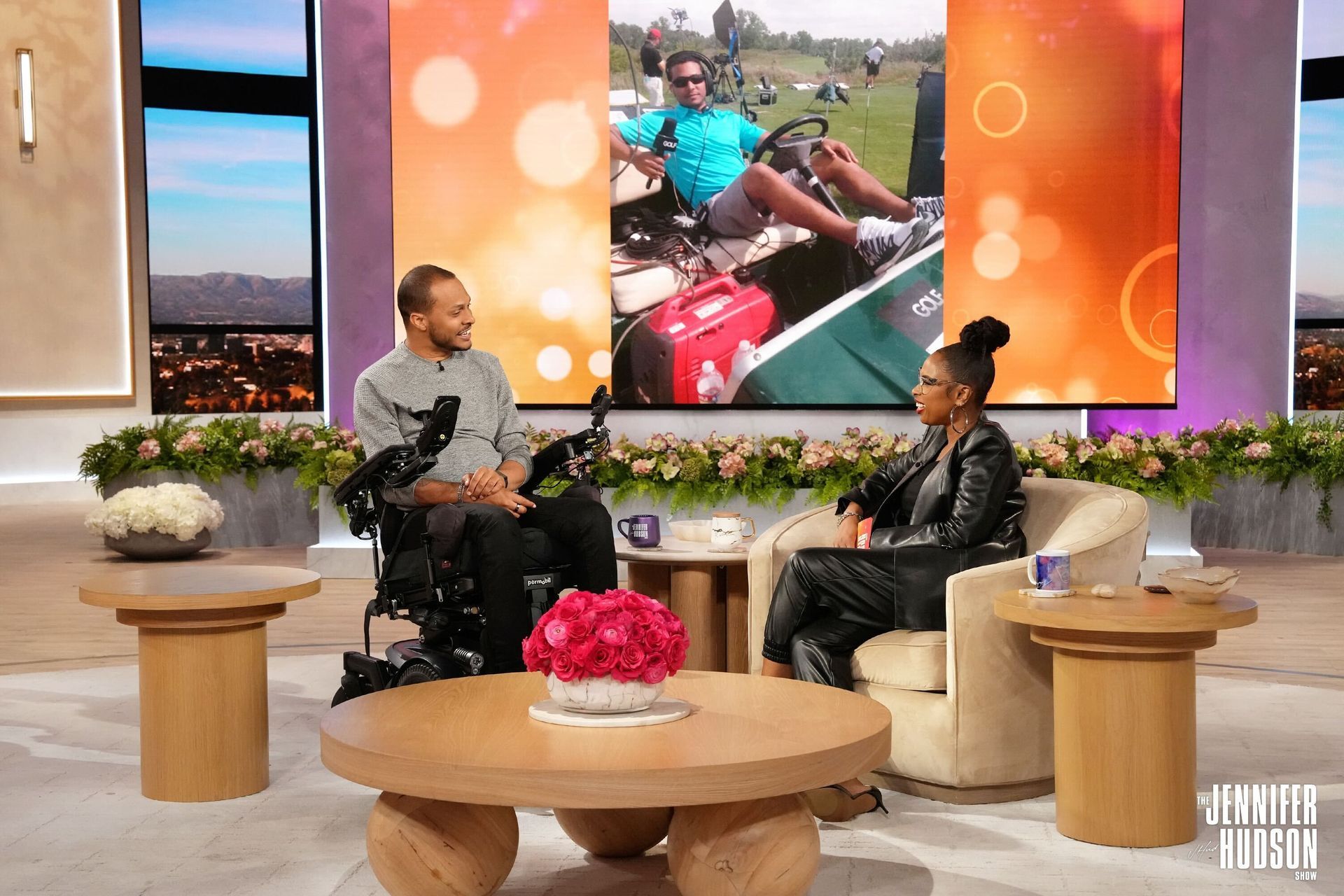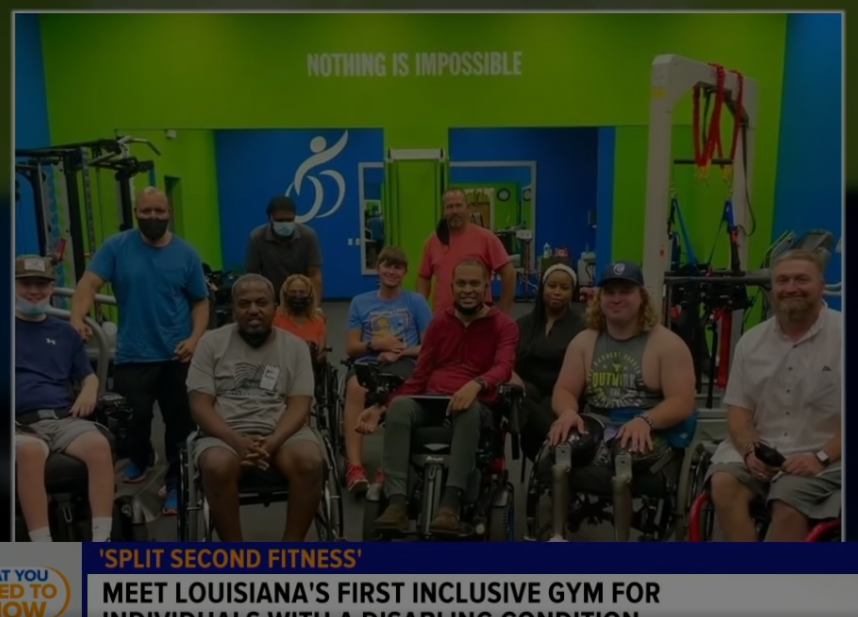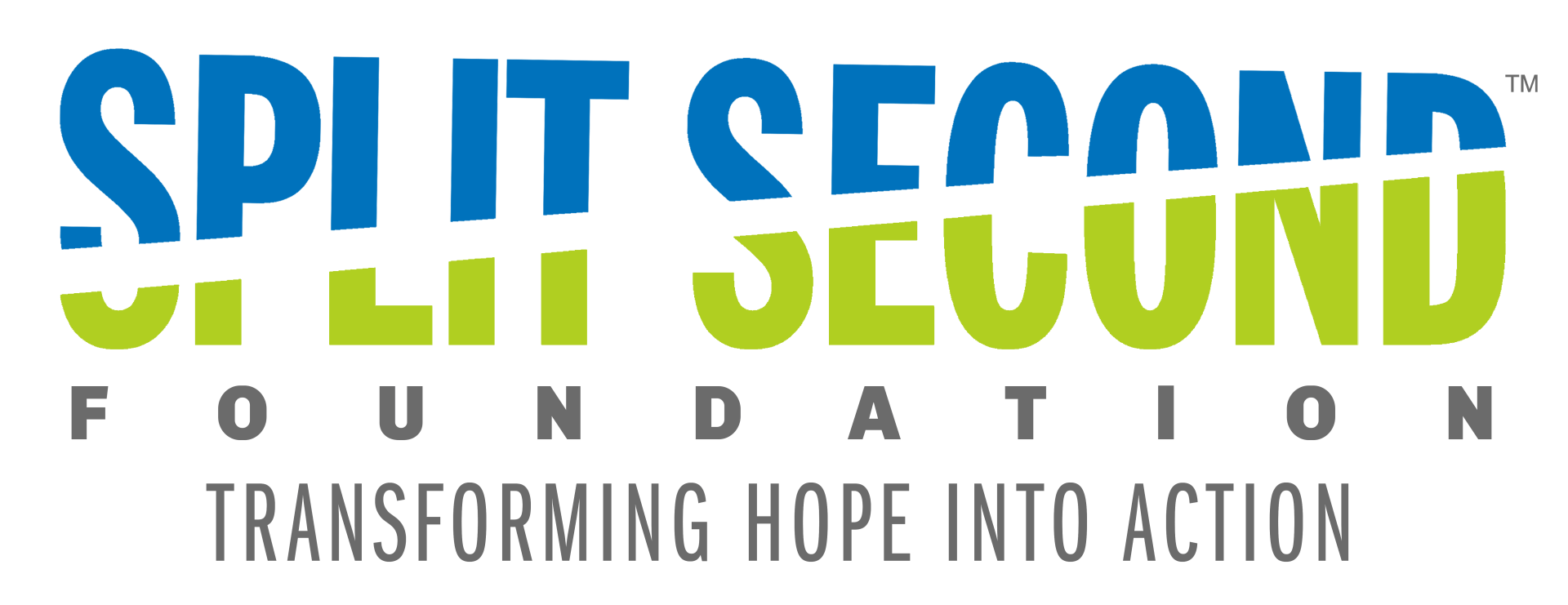The News
IN THE NEWS
The News
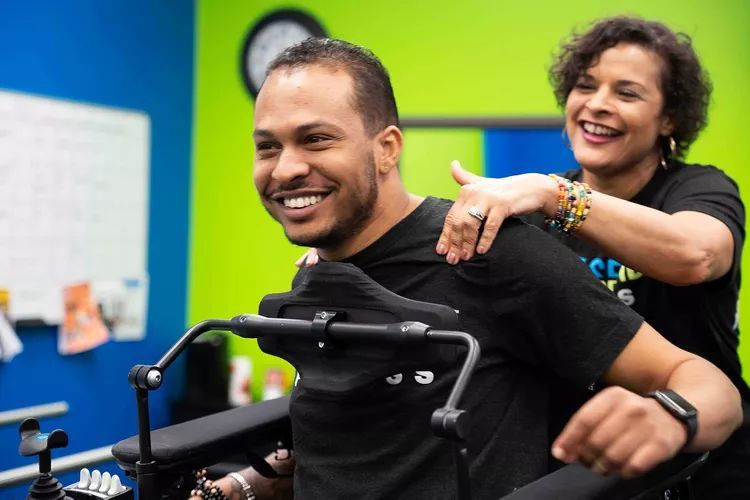
March 16, 2024
The last thing Mark Raymond Jr. remembers in those final seconds before the accident was standing in the back of his buddy’s boat at the end of a perfect July afternoon in 2016, and staring down into the waters of Louisiana’s Lake Pontchartrain. Then he dove in and instantly felt his forehead slam into the sandy bottom of the lake. “I couldn’t move and realized, 'I’m probably going to drown,’ " Raymond tells PEOPLE in this week's issue. “My last thoughts were about my mom and just praying that my friends would realize what was happening.” He was close to death when his pals pulled him out of the water and performed CPR. Two weeks later, Raymond awoke from a medically induced coma in a New Orleans hospital to discover that he’d fractured the fifth vertebrae in his neck and could no longer walk or fully use his hands. “I quickly learned that my life was going to be really different,” he says. “To call it a huge adjustment is an understatement.” Read more.
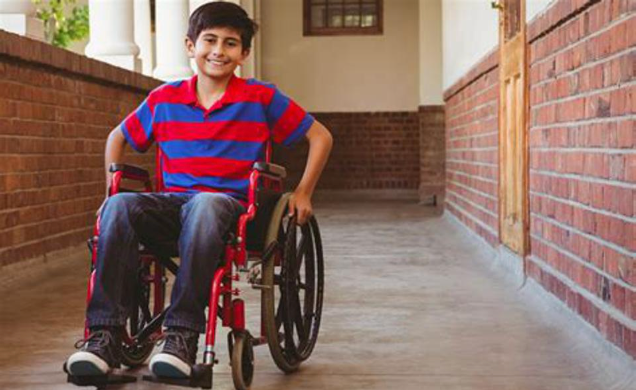
April 6, 2023
It seems every month is associated with a specific cause or purpose. For example, April is Financial Literacy Month. For the majority of disabled people, financial anything often is fraught with stress. If one were to bottle ableism’s essence, it may well be society’s rules and regulations surrounding the disability community and money. In a nutshell, the expectation is people with disabilities are destined to live in squalor forever: earning and especially saving any amount of money is perilous, due to the risk of becoming disqualified for social services that one would otherwise be fully entitled to receiving. This issue pushes against other common activities that most people take for granted, such as getting married and owning property. It is possible for us to partake in these things, but it isn’t without its drawbacks. It’s a “measure a million times and maybe cut once” scenario. As with everything in our lives, consideration is key. At its core, the rules essentially signal society doesn’t believe members of the disability community to be competent and capable contributors to the world. It’s important to note, not all disabled people are destitute. Indeed, there are many disabled people in the world—particularly those who work in Silicon Valley—who make more than a living wage. The point is merely that, by and large, disabled people are decidedly not high earners—if they actually earn anything at all. The aforementioned tech workers are the proverbial exception to the rule. To help disabled people shed their life of impoverishment stigma, ABLE accounts are designed to help those in the community save money for whatever is necessary. Achieving a Better Life Experience (ABLE), came into existence by the passage of the eponymous Achieving a Better Life Experience Act of 2014. According to the National Resource Center’s website, ABLE accounts recognize the fact that “living with a disability is often associated with significant amounts of extra costs” and are meant to act as “tax-advantaged savings accounts that can fund disability expenses". Beneficiaries can save, depending upon the state, between $235,000 to $550,000—up to $17,000 per year. In an ABLE account, numbers that are exponentially higher than the $2,000 in liquid assets are necessary to maintain monthly government benefits such as Social Security. Eligible holders must have become disabled at age 26 or sooner. Although recently-passed legislation (going into effect in 2026) raises the eligibility age to 46, to account for people who become disabled later in life. To date, only 137,192 people, with a cumulative $1.25 billion saved, are active ABLE account holders.(Full disclosure: those figures include an account held by this reporter.) One of the first people in the United States to get an ABLE account is Carol Akers. Akers, who lives in Columbus, Ohio, is the primary caretaker for her severely disabled 38-year-old son named Dustin. His father, who’s no longer living, shook him when he was four months old. As a result, Dustin is blind, has cerebral palsy, and is developmentally delayed. He requires assistance in all aspects of day-to-day life. Socioeconomically, Dustin had been on and off Social Security benefits due to his mother’s income, and authorities would regularly tell her she couldn’t keep meaningful savings as they would potentially harm his earnings potential, in terms of benefits. This led Akers to worry constantly about leaving a nest egg for Dustin’s care, in a future where she may not be around to give him the help he needs. “I think it lessens the value of people with disabilities,” Akers said of the rigid monetary rules in place for disabled people. “They’re not treated equally for the government or other entities to say, ‘I’m sorry that you’re not allowed to save money.’ If you were without disabilities, you could save all kinds of money: you could invest, you could do so many things. But because you have a disability, we’re going to limit you. I understand that Medicaid pays for Dustin’s waiver and pays his medical [insurance], and that’s wonderful. But in a perfect world, if Dustin was a typical 38-year-old, by now he would have had his college degree, he would be driving car, he would have a family. He wouldn’t need the assistance that I give him physically or financially. It [the government’s rules] bothers me.” For Mark Raymond, he couldn’t agree more with the frustration over the rules. “It’s frustrating as an individual with a disability that had to confront all of these rigid laws and rules on how much money I can have or save,” he said in an interview with me last month via videoconference. “I understand their perspective, as they’re trying to prevent fraud and prevent people from abusing the system. But I don’t feel like having such rigid restrictions on people’s financial health is really accomplishing that goal of preventing fraud. That’s a challenge, and I think that’s where we, as disabled community members, have to confront our public officials and elected officials and leaders to [get them to] rethink these restrictions. I will say, I think that ABLE is another tool in the tool chest, but it doesn’t solve all the problems. If you need a hammer, it’s not a hammer, but it’s a good screwdriver.” Raymond, who works with ABLE Today as its national outreach lead and is founder and Chief Executive of the Split Second Foundation , became disabled on the Fourth of July in 2016 after breaking his neck’s C5 vertebrae in a diving accident, leaving him paralyzed from the waist down. The sudden thrust into the disabled life was a jolting experience for Raymond, not the least of which financially. He was “inundated” with the intricacies of the healthcare system, quickly realizing he’d need to renovate his home to be more wheelchair accessible, after his discharge from the hospital. He’d also require mental health support to emotionally navigate his new reality as much as was pragmatically possible. It was during this time he became inspired to start his foundation, telling me “going through that situation and feeling isolated [and] feeling denial [over his disability] was what drove me to my passion and purpose.” Read more.
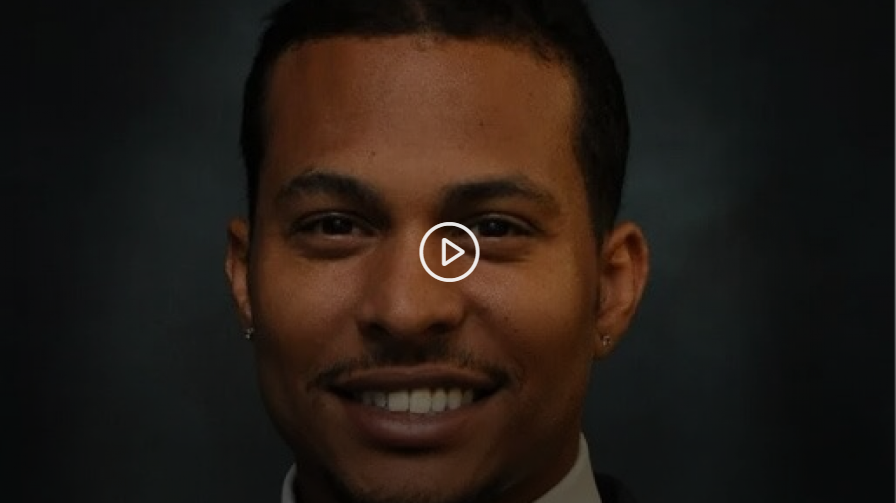
March 21, 2023
For amputees and wheelchair-bound people, the world can be a little complicated. Life changed for many of these people in a "split second" after accidents. Now a New Orleans man is trying to give them a safe space to work on their minds, bodies and souls. Scripps News' national correspondent Tammy Estwick spoke to Mark Raymond Jr. about his first-of-its-kind gym for disabled people in Louisiana. Read more.
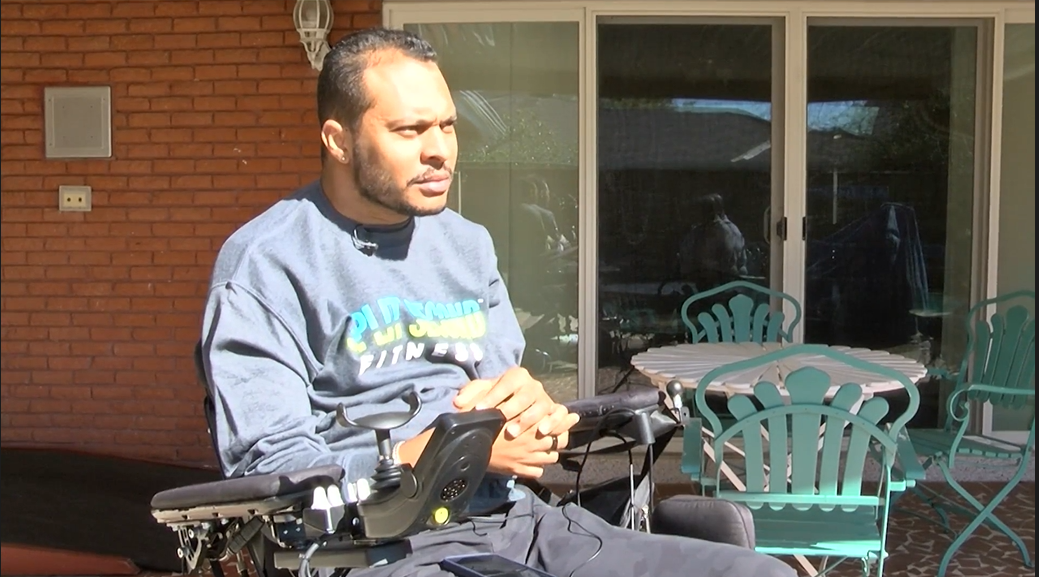
March 16, 2023
BATON ROUGE, La. (BRPROUD) – Many people have already jumped in swimming pools and pulled out their boats following recent warmer temperatures, and some families will take vacations when students are out of school for spring break. Mark Raymond Jr. encourages everyone to be careful if they plan to go boating. His life changed in a split second in 2016, while boating with his friends on Lake Pontchartrain. “I wasn’t paying attention to the tide. What I thought was deeper water was not. Doved off the boat and hit my head on the sandy bottom, and I shattered the fifth vertebra in my neck, resulting in paralysis. I injured my spinal cord, and I woke up three weeks later with doctors telling me that I might be paralyzed for the rest of my life,” said Raymond. “The biggest thing for me was denial and accepting my reality. It’s a process when you get news like that. It takes a minute for the brain to process or understand and accept it.” Doctors warn diving into shallow water can result in devastating and irreversible injuries to the spinal cord. They said most of the patients are males and the injuries are preventable. As many as one out of every 10 injuries to the cervical spinal cord is caused by a diving accident, according to physicians. Safety experts said swimmers should enter the water feet first to determine depth before jumping off a boat or any other platform. Diving should be done in water at least 10 to 12 feet deep and never dive in an above-ground pool. Raymond does not recommend people live in fear of diving but instead make smarter decisions. “The message that I try to get across now to people, in general, is be mindful of the risk you take,” he said. Because of his injury, Raymond decided to help others with disabilities. He created the Split Second Foundation , giving people with disabilities a comfortable space to workout, engage with mental health professionals and find resources to enhance their quality of life. “I didn’t understand how big the disabled community was prior to my accident. So our mission at the Split Second Foundation is to break barriers for people with disabilities,” Raymond stated. The foundation is based in New Orleans and Raymond said plans are underway to expand with fitness centers in Baton Rouge and other parts of Louisiana. Read more.

March 15, 2023
According to the U.S. Coast Guard, over 600 people died as a result of boating accidents and over 2000 were injured in 2021. ABC 31 News Reporter Keisha Swafford has the story on how a Louisiana resident overcame a boating accident disability to help others. Diving into water while boating can lead to spinal cord injuries each year. To stay safe on the water, Red River Marine teaches us some boating tips. Red River Marine Boat Parts Serviceman Jacob Waites says, “You always want to make sure you have this kill switch on you. You just connect to your life jacket or sometimes they come with a wrist strap. When you get thrown out of the boat, if it happens, it will automatically kill itself and your boat will just sit there.” A split-second decision to dive off a boat left Mark Raymond Jr. in a wheelchair. CEO of Split Second Foundation Mark Raymond Jr. says, “I was not paying attention to the depth of the water and as the day went on, the tide changed and what was a deeper lake became a shallower lake, and when I dove off the back of the boat, I hit my head on the sandy bottom and shattered the fifth vertebrate in my neck, leaving me paralyzed from about the chest down. My family definitely helped me pick up the pieces after my accident and as I was dealing with the grief and the depression, really made sure that I was surrounded by love and support.” After his accident, Mark Raymond Jr. founded Split Second Foundation to provide the disabled community access to fitness. “It’s amazing, every time I roll into our facility, I get goosebumps, seeing all the people who quite frankly need our services every day, and are happy to be there.” Split Second Fitness Participant Ray Walker reached out to Split Second Fitness after a car accident left him paralyzed. “They give me a chance to be consistent, and when I come into Split Second, we have our trainings, and they help you work different muscle groups to keep your strength up and to help you with everyday stuff like pushing. Me going into Split Second, lifting weights, it helps me push longer distances.” Split Second Fitness is proof there is still life after disability. The CEO of Split Second Foundation says, “We just have to find that community and find the people we can lean on that can understand and are empathetic to our situations and help us keep moving forward.” Split Second Fitness plans to expand to Central Louisiana. Through donations, Mark Raymond Jr. plans to open a Split Second Fitness gym in Alexandria in 2024. Read more.

March 9, 2023
By Rob Dillard - March 9, 2023 There are currently 61 million Americans living with a disability in the US and with that high of a number, you would think the healthcare system would have resources, services, and tools in place to help someone who experienced a disability, either from a physical accident, heart attack, stroke, or other cause following hospital discharge. However, as noted by Mark Raymond Jr., a C-5 quadriplegic, the sad truth is most people living with a disability leave the hospital and are thrown into a confusing and gap-filled healthcare system they must try to navigate by themselves. Mr. Raymond, who is the founder of the non-profit Split Second Foundation , spoke to DocWire News about his journey, and his foundation, and how he aims to help the disability community and fill in some of the gaps he noticed in treatment and services. Read more.
Join Our Email List
Thank you for contacting us.
We will get back to you as soon as possible
We will get back to you as soon as possible
Oops, there was an error sending your message.
Please try again later
Please try again later

